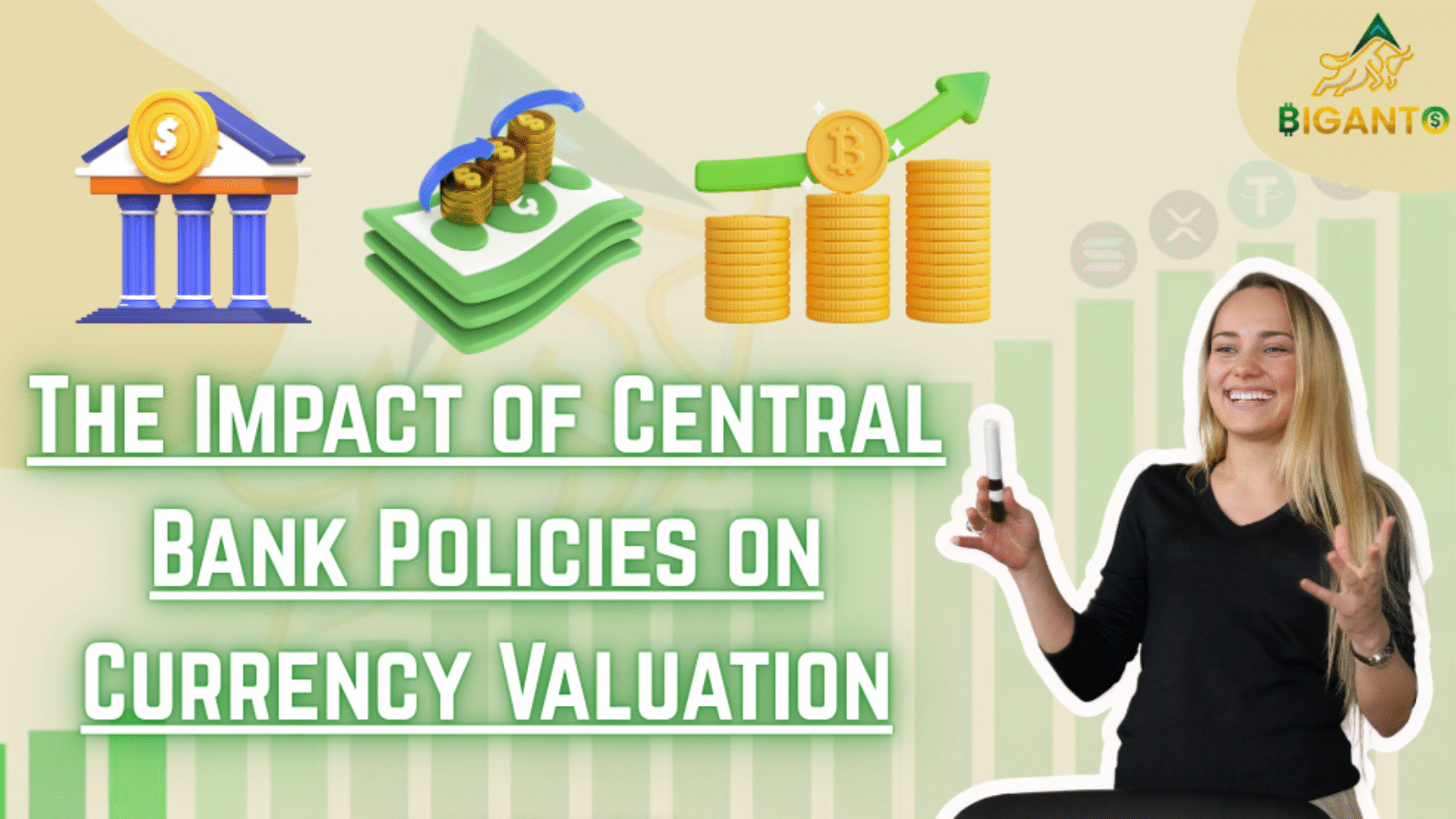In the global foreign exchange (Forex) market, few forces are as influential as central banks. Whether it’s an interest rate hike, a quantitative easing program, or a change in inflation targets — central bank policies have a direct and profound impact on currency valuation.
Understanding how monetary policy decisions shape currency strength is essential for traders, investors, and anyone participating in the financial markets.
What Are Central Bank Policies?
Central banks, such as the Federal Reserve (Fed), European Central Bank (ECB), Bank of England (BoE), and others, are responsible for implementing monetary policy to maintain economic stability.
Key tools used by central banks include:
- Interest rate adjustments
- Open market operations
- Quantitative easing (QE) or tightening (QT)
- Foreign exchange interventions
- Inflation targeting
These tools directly influence money supply, inflation, and investor sentiment — all of which impact the value of a nation’s currency.
How Interest Rates Affect Currency Value
One of the most powerful levers a central bank can pull is the interest rate. Here’s how it works:
- Higher interest rates attract foreign capital, as investors seek higher returns on their investments. This increased demand for the local currency strengthens its value.
- Lower interest rates tend to reduce foreign investment inflows, leading to a weaker currency.
For example, when the Federal Reserve increases interest rates, the U.S. dollar typically strengthens against other currencies.
Inflation and Its Role in Currency Valuation
Central banks closely monitor inflation as it affects purchasing power and economic growth. A moderate inflation rate is healthy, but too much or too little can be problematic.
- If inflation is too high, central banks may raise rates to cool the economy, which can boost the currency.
- If inflation is too low, they might lower rates or introduce quantitative easing — often weakening the currency in the short term.
Traders pay close attention to Consumer Price Index (CPI) data and central bank meeting statements to anticipate such policy shifts.
Quantitative Easing (QE) and Its Impact on Forex
Quantitative easing involves large-scale asset purchases by a central bank to inject liquidity into the economy.
- QE increases money supply, usually resulting in a weaker currency due to dilution of value.
- When QE ends or transitions into quantitative tightening, it can lead to currency strength as supply contracts.
An example is the Euro weakening during the ECB’s QE program, and the USD strengthening when the Fed began tapering QE measures.
Market Expectations and Forward Guidance
Often, it’s not just the policy itself, but the expectation of future policy that moves markets. Central banks use forward guidance to signal their intentions, which traders use to position themselves ahead of official decisions.
For instance, if the Fed signals that rate hikes are coming, the USD may rise even before the actual hike occurs.
Geopolitical Stability and Central Bank Independence
A central bank’s credibility also affects currency value. Independent, transparent, and stable institutions are more trusted by global investors.
- Political interference or erratic policy changes can lead to currency volatility or depreciation.
- Confidence in a central bank’s ability to manage inflation and growth supports a stronger and more stable currency.
How Traders Use Central Bank Insights
Professional Forex traders analyze central bank policy to:
- Anticipate rate decisions using economic data (jobs reports, CPI, GDP)
- Interpret central bank meeting minutes and statements
- Monitor economic calendars for key announcements
- Trade currency pairs based on interest rate differentials
Conclusion
Central bank policies are among the most critical drivers of currency valuation. From interest rate changes to inflation management, their decisions ripple across the Forex market — influencing supply, demand, and investor behavior.
For any serious trader or investor, keeping a close eye on central bank policy is not optional — it’s essential for informed decision-making and long-term success.
Want to Master Forex Fundamentals?
Explore our expert guides and trading programs focused on macroeconomic analysis, smart money concepts, and institutional strategies. Stay ahead of the market with knowledge that professionals rely on.
Tags: Central Bank Policy, Currency Valuation, Forex Trading, Interest Rates, Quantitative Easing, Inflation, Forex Fundamentals, Economic Indicators, Smart Money Trading

